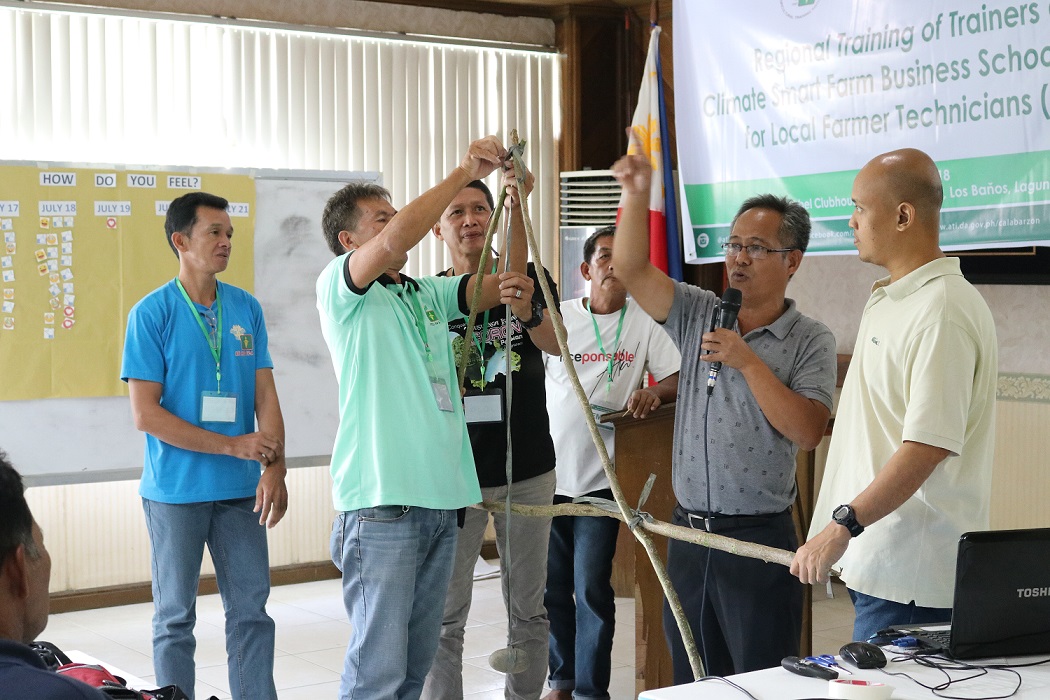Participants of Training of Trainers on Climate Smart Farm Business School during hands-on activities.
LOS BAÑOS, Laguna – To amply equip the Local Farmer Technicians (LFTs) with skills, knowledge and attitude towards facilitating farmer-level Climate Smart Farm Business School (CSFBS) in their respective locale, the Agricultural Training Institute (ATI) CaLaBaRZon conducted the Regional Training of Trainers (ToT) on CSFBS for LFTs. A total of 25 LFTs across CaLaBaRZon region attended the training from July 16 – 25, 2018 in Arisabel Clubhouse, Los Baños, Laguna.
"Malaking bagay ang training na ito para sa mga farmers, at para sa sarili ko higit sa lahat dahil may pangarap ako na gustong mangyari sa aking buhay, gusto ko po pasukin ang pagnenegosyo," genuinely shared by Mr. Fredielito Mergilla, one of the participants. Notable resource speakers lectured certain topics to provide information and understanding to particpants, namely Dr. Rolando V. Maningas (Implementation of ASEAN Economic Integration and Windows of Opportunity for Filipino farmers), Nonong Velasco (Understanding Marketing and Markets & Market Survey and Benchmarking), Brian A. Belen (Understanding the Basic Concept of Farm Profitability) and Joe Kim Cristal (Decision Making Tools/ICT Base Tools, Review on PalayCheck Systems and Palayamanan and Overview on How to Conduct the CSFBS - Farmer Level). Additionally, some government agencies were also invited to discuss on Program Updates and Projects for 2018 and Climate Resilient Varieties and New Released Varieties (PhilRice); Understanding Climate Change and Risks (PAGASA); Soil Conservation Measures in sloping areas (Bureau of Soils and Water Management); Plans and Programs PLEA and SURE (Agricultural Credit Policy Council); and Financial Risk Mechanism (Philippine Crop Insurance Corporation).
The LFTs completed the ten-day training with a motivating message from Engr. Enrique Layola, Department of Agriculture Regional Field Office Region IV-A Rice Focal Person, “Calabarzon's future plan is to produce High Value Rice Varieties to open farmers for opportunities to earn more, thus encouraging them to be more productive and resilient to sustain food sufficiency.”

